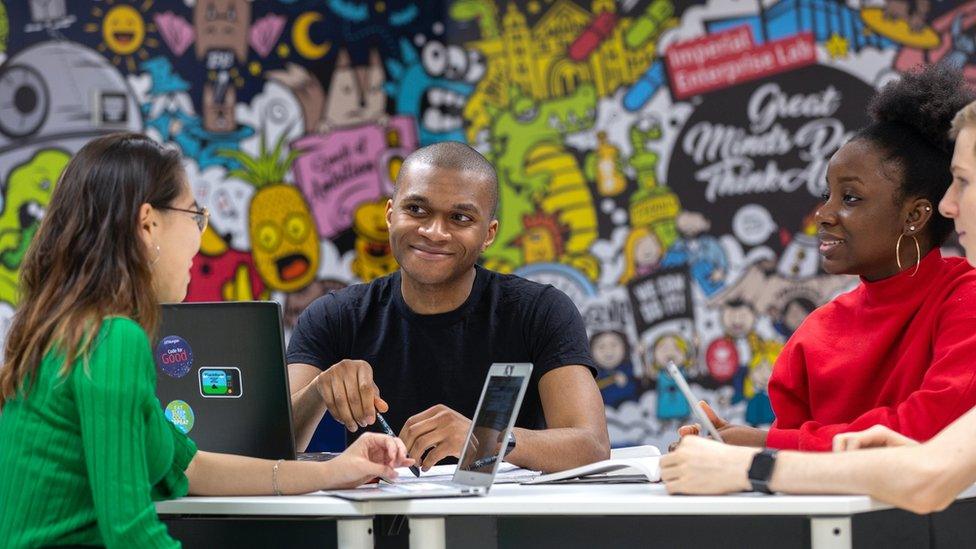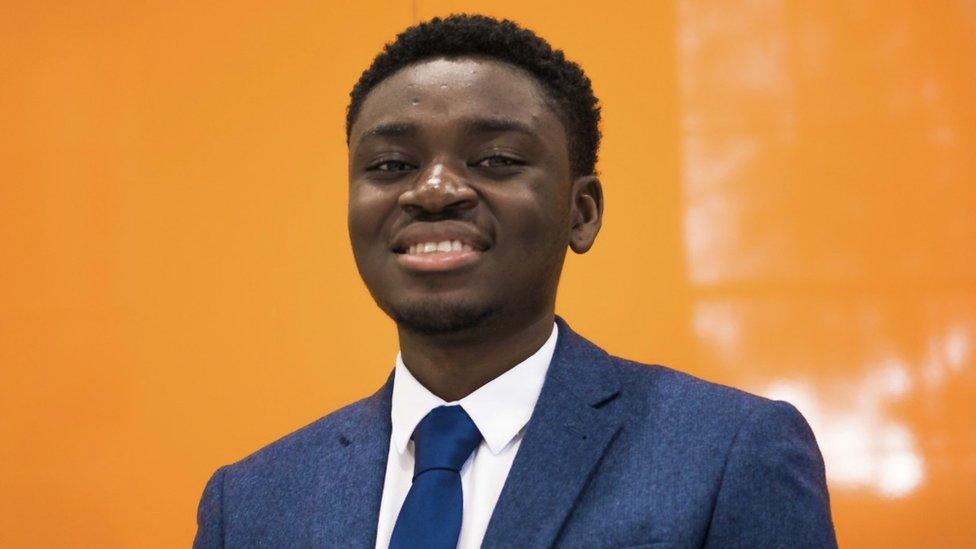More black students sought by top science college
- Published

More than half of undergraduates at Imperial are BAME - but few of these are black
A drive to tackle the under-representation of black students is being launched at Imperial College London, in a £5m scholarship and mentoring scheme.
Out of more than 10,000 undergraduates at Imperial, only 235 are black.
The university, one of the world's top science institutions, wants to at least double that number.
Imperial's president, Alice Gast, said: "We are missing contributions from large segments of the population."
The initiative to recruit more black students at the top science college also shows how multi-layered the figures can be for BAME students (black, Asian and minority ethnic).
'Self confidence'
More than half of Imperial's undergraduate intake are already students from a BAME background - outnumbering white students and much higher than many other leading Russell Group universities.
But the great majority of BAME students are from Asian communities, including from China.
Below the BAME headline figure, black students from the UK remain under-represented - accounting for 235 out of more than 5,000 BAME undergraduates at Imperial.
Only 15 students are recorded as being from a "black British Caribbean" background - half the number of a decade ago. The majority of black students are now from black African families.

Abeku Koomson is supporting a mentoring scheme that had made a big difference to him
Abeku Koomson, a medical student at Imperial, is taking part in a mentoring project which he hopes will support more applications from black students.
He says more role models are needed for black students at institutions such as Imperial. "Representation is so important for self confidence," he says.
The medical student went to a "low-performing state school" and had initially been turned down by all the universities where he had applied.
He reapplied with the help of a mentor, which "made a dramatic difference" in terms of preparing for exams and the application process.
Imperial is funding £5m in scholarships and support work to attract more black students and is seeking another £5m from donors, as part of a wider £20m diversity scheme.
There are eight applicants for every place at Imperial - and to help more students get the top A-level maths grades needed, the university is also supporting the opening of a specialist maths school.
"Role models, practical advice and money can go a long way," said university president, Prof Gast.
She said that Abeku Koomson was a good example of an "extremely bright pupil in a low-performing state school. While intellectually brilliant, he had few reference points for how to get into a top university".
The drive for a more diverse intake "will strengthen and enrich our community. It will make us more competitive," said Prof Gast.